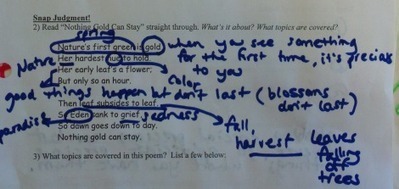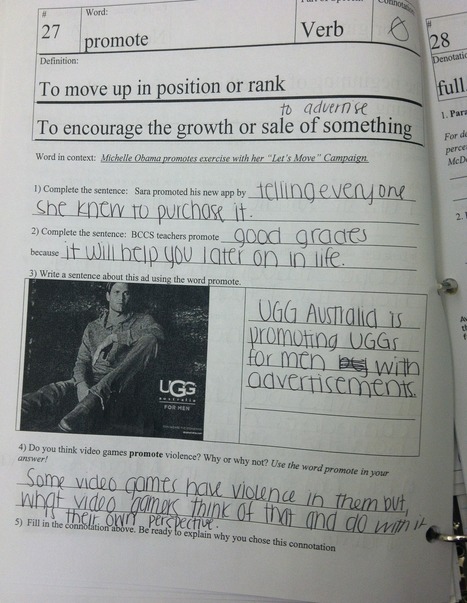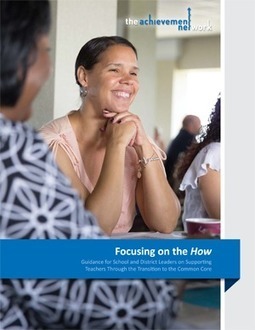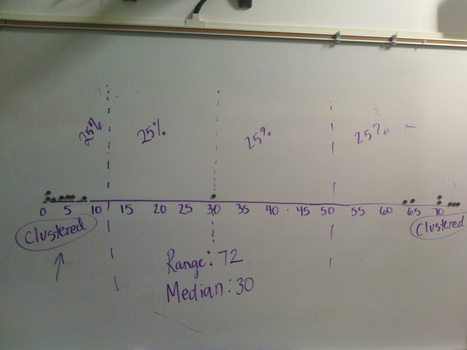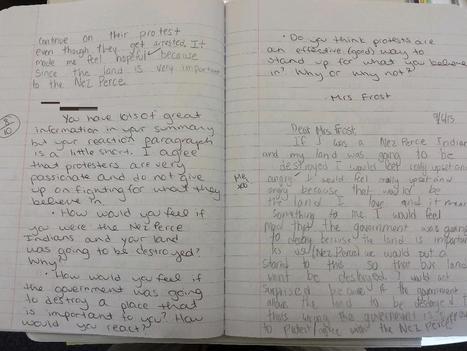Nothing Gold Can Stay by Kathleen Stern Recently, I revamped a poetry analysis lesson using feedback from the other Transition Fellows. I asked my seventh grade students to analyze the poem “Nothi...
Get Started for FREE
Sign up with Facebook Sign up with X
I don't have a Facebook or a X account
 Your new post is loading... Your new post is loading...
 Your new post is loading... Your new post is loading...

Allie Spickermann's curator insight,
June 22, 2016 10:05 PM
There are a lot of aspects of lit circles that can transfer into other aspects of the curriculum, but discussion skills can also transfer into the "real world." This article is also an example of a specific skill that teachers can use lit circles to focus on in their classroom.

Jennifer Shackles's curator insight,
January 18, 2014 9:11 AM
The addition of the precise language and visuals is what we have been telling teachers to do for years for both the ELLs and native speakers. I appreciate the fact that it is supported by the deeper thinking required of the CCSS.

Dr. Dea Conrad-Curry's curator insight,
December 12, 2013 9:32 AM
My comment on the blog: Thanks for sharing. I appreciate the work you are doing to tie the process of reading alphabetic words to images representing the connection among those words and your sharing the images of student work. You are so right about all you say…our brain sees in images not in words…well, at least most brains. Your activities help students to become metacognitive and this type of reflection builds thinking skills. Another use of image-making is to ask students to draw what they intend to write before actually writing…for many students, this helps clarify and organize thoughts rambling around in their head, especially the struggling writer challenged to generate words. Just another though. |

Dr. Dea Conrad-Curry's curator insight,
September 30, 2014 8:50 AM
The examples come from science, but these strategies are applicable across disciplines.

Elizabeth Sky-McIlvain's comment,
December 19, 2013 10:21 AM
Before you use this tool with students, learn to use it. Many of the rap lyrics are not appropriate for MS (at least not to read in print...). Many of the annotations are crude - are these good models? Also, strongly consider citations for images and poem texts - without these, we are teaching annotation, yes, but also how poor digital citizenship. And where is the conversation? It might cost more, but that would make the tool more useful. VoiceThread does the same thing, by the way, in a cleaner environment.

KB...Konnected's curator insight,
February 3, 2014 8:53 PM
Looks interesting. Further investigation required. |




